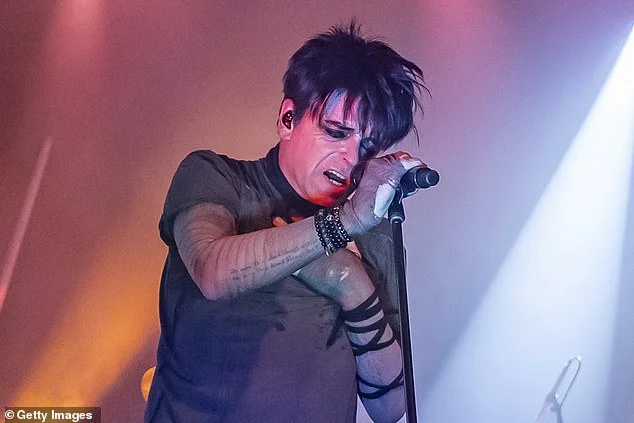Fans at the O2 Academy Birmingham were left concerned on Saturday when music legend Gary Numan unexpectedly stopped his set midway through his performance of Please Push No More.
The 67-year-old singer appeared visibly upset, prompting his wife, Gemma O’Neil, to rush on stage to support him.
A Difficult Day Takes Its Toll
Numan told the audience he had received “the worst news” earlier that day, which left him shaken during the concert.
Representatives for the singer declined to comment when approached by the Daily Mail, leaving fans speculating about the reason for his distress.
Despite the interruption, Numan is scheduled to perform at Bristol Beacon the following evening as part of his nationwide tour.
Celebrating 45 Years of Telekon
This year marks the 45th anniversary of Numan’s seminal album Telekon, and he has been performing it live in its entirety.
Fans have been treated to classics such as We Are Glass, I Die: You Die, and This Wreckage.
The Birmingham show, however, took a sudden emotional turn, prompting an outpouring of concern on social media.
Fans Rally with Support
Social media was flooded with messages from worried fans.
One wrote, “Gary Numan breaks down at O2 in Birmingham??
Hope he’s okay! He said he heard something today but it’ll all come out in a few days.”
Another added, “Rough to see him so upset during PPNM—absolute pro to battle on.”
Others expressed hope that his distress wasn’t related to his health or family.
Family and Personal Life
Numan and his wife Gemma have three children: Raven, Persia, and Echo.
Previously, he has spoken openly about his love for his wife, describing her as “everything I am not” and expressing affection even after 30 years together.
The couple’s strong bond has been a cornerstone of his personal life amidst the pressures of fame.
Early Life and Challenges
Born Gary Webb in Hammersmith in 1958, Numan grew up as the son of a British Airways bus driver.
Academically bright but a self-described troublemaker, he was referred to psychiatrist Dr. Eva Frommer at age 14.
She administered Valium and Nardil, which left him feeling “zombified,” and mentioned Asperger’s syndrome, although no formal diagnosis was made at the time.
Reflecting on Asperger’s
Numan has said he never received an official diagnosis and that the concept of Asperger’s was new in the 1970s.
“I didn’t care. I just saw it as a nice day out in London with my mum,” he reflected.
Despite these early challenges, Numan rose to fame as a pioneering electronic music artist, maintaining a career that spans over four decades.
Looking Ahead
Fans will be eager to see Numan at the Bristol Beacon performance and hope that whatever personal news disrupted the Birmingham show does not hinder the remainder of his tour.
As always, his music and resilience remain central to his enduring connection with audiences worldwide.
Share on Facebook «||» Share on Twitter «||» Share on Reddit «||» Share on LinkedIn
